Victor Antonescu | |
|---|---|
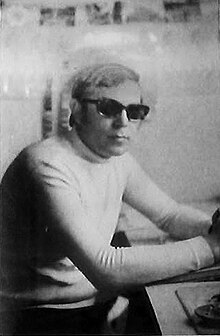 | |
| Born | July 16, 1936 |
Victor Antonescu (born July 16, 1936 in Bucharest, Romania) is a Romanian animation film director.
Victor Antonescu | |
|---|---|
 | |
| Born | July 16, 1936 |
Victor Antonescu (born July 16, 1936 in Bucharest, Romania) is a Romanian animation film director.
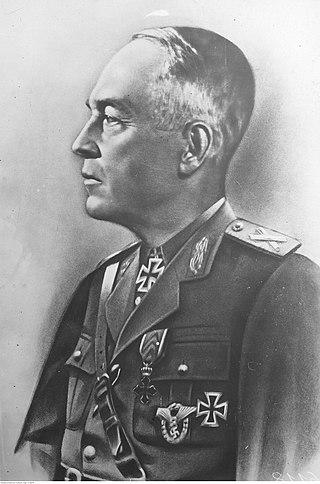
Ion Antonescu was a Romanian military officer and marshal who presided over two successive wartime dictatorships as Prime Minister and Conducător during most of World War II. Having been responsible for facilitating the Holocaust in Romania, he was tried for war crimes and executed in 1946.

Romania competed at the 1956 Summer Olympics in Melbourne, Australia and Stockholm, Sweden. 44 competitors, 33 men and 11 women, took part in 35 events in 10 sports.

The siege of Odessa, known to the Soviets as the defence of Odessa, lasted from 8 August until 16 October 1941, during the early phase of Operation Barbarossa, the Axis invasion of the Soviet Union during World War II.

Between 21 and 23 January 1941, a rebellion of the Iron Guard paramilitary organization, whose members were known as Legionnaires, occurred in Bucharest, Romania. As their privileges were being gradually removed by the Conducător Ion Antonescu, the Legionnaires revolted. During the rebellion and subsequent pogrom, the Iron Guard killed 125 Jews, and 30 soldiers died in the confrontation with the rebels. Following this, the Iron Guard movement was banned and 9,000 of its members were imprisoned.

The National Legionary State was a totalitarian fascist regime which governed Romania for five months, from 14 September 1940 until its official dissolution on 14 February 1941. The regime was led by General Ion Antonescu in partnership with the Iron Guard, the Romanian ultra-nationalist, anti-Semitic, and anti-communist organization. Though the Iron Guard had been in the Romanian Government since 28 June 1940, on 14 September it achieved dominance, leading to the proclamation of the National Legionary State.
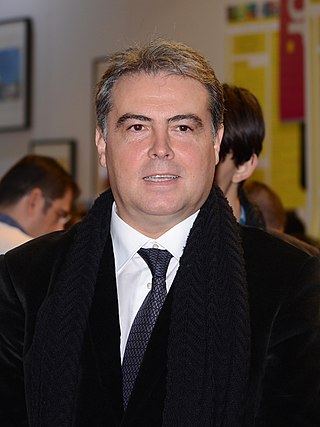
Adrian Mihai Cioroianu is a Romanian historian, politician, journalist, and essayist. A lecturer for the History Department at the University of Bucharest, he is the author of several books dealing with Romanian history. He is also noted for his contribution as co-author of a high school textbook.

Eduard Raul Hellvig is a Romanian political scientist, journalist and politician who served as director of the Romanian Intelligence Service (SRI) from 2015 to 2023. A former member of the National Liberal Party (PNL) and previously of the Conservative Party (PC), he represented Bihor County in the Romanian Chamber of Deputies from 2004 to 2008, and sat for Ilfov County from 2012 to 2013. In the Victor Ponta cabinet, he was Minister of Regional Development and Tourism in 2012. During 2007, he was Member of the European Parliament (MEP) for Romania, a position he once again took up in 2013, and which he left upon becoming SRI director.

The 1944 Romanian coup d'état, better known in Romanian historiography as the Act of 23 August, was a coup d'état led by King Michael I of Romania during World War II on 23 August 1944. With the support of several political parties, the king removed the government of Ion Antonescu, which had aligned Romania with Nazi Germany, after the Axis front in northeastern Romania collapsed in the face of a successful Soviet offensive. The Romanian Army declared a unilateral ceasefire with the Soviet Red Army on the Moldavian front, an event viewed as decisive in the Allied advances against the Axis powers in the European theatre of World War II. The coup was supported by the Romanian Communist Party, the Social Democratic Party, the National Liberal Party, and the National Peasants' Party who had coalesced into the National Democratic Bloc in June 1944.
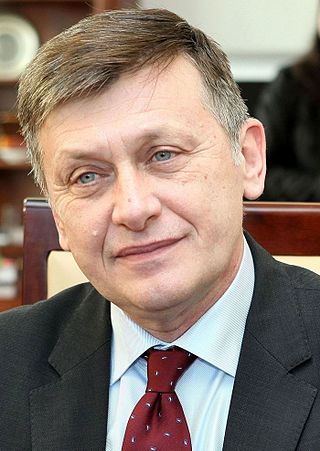
George Crin Laurențiu Antonescu is a Romanian politician, who was President of the National Liberal Party (PNL) from 2009 to 2014. He also served as the country Acting President after the impeachment of Traian Băsescu and as the President of the Senate.
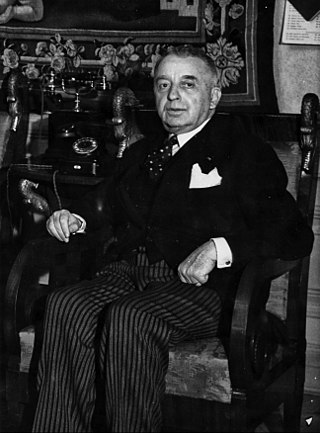
Victor Antonescu was a Minister of Finance between 1935 and 1936 and Minister of Foreign Affairs of Romania from 29 August 1936 until 28 December 1937. In 1946, he was part of the Romanian delegation at the Paris Peace Conference.
Antonescu is a common family name in Romania derived from the root name, Antonius. Persons named Antonescu include:
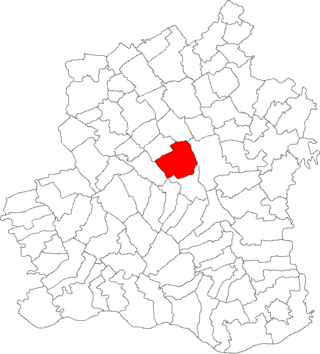
Călinești is a commune in Teleorman County, Muntenia, Romania. It is composed of five villages: Antonești, Călinești, Copăceanca, Licuriciu and Marița.

Nicolae Ciupercă was a Romanian general, born in Râmnicu Sărat. He served during World War I and World War II under the command of Alexandru Averescu and then Ion Antonescu, but would retire from a military life in 1941 over strategy disagreements with Antonescu. He also served as Minister of National Defense in 1938–1939.
Ionuț Chirilă is a Romanian football manager. He is the son of journalist Ioan Chirilă and actress Iarina Demian and brother of the singer Tudor Chirilă.
Ponta II Cabinet was the Council of Ministers which governed Romania from 21 December 2012 to 5 March 2014. A crisis inside the ruling coalition, the Social Liberal Union (USL), resulted in the split of the governing alliance and collapse of the government.
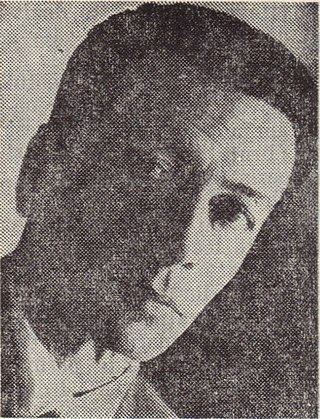
Geo Dumitrescu was a Romanian poet and translator.
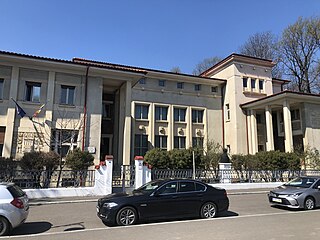
The Nicolae Iorga Institute of History is an institution of research in the field of history under the auspices of the Romanian Academy. The institute is located at 1 Bulevardul Aviatorilor in Sector 1 of Bucharest, Romania.
Ioan Chirilă was a Romanian sports broadcaster and sports writer. The Ioan Chirilă Awards are named in his honour. He was married to actress Iarina Demian with whom he had two sons: Ionuț who is a football coach and Tudor who is a singer.

The Battle of Slatina was a military engagement between Romanian and German forces during World War I. It resulted in a strategic victory for the Romanians.